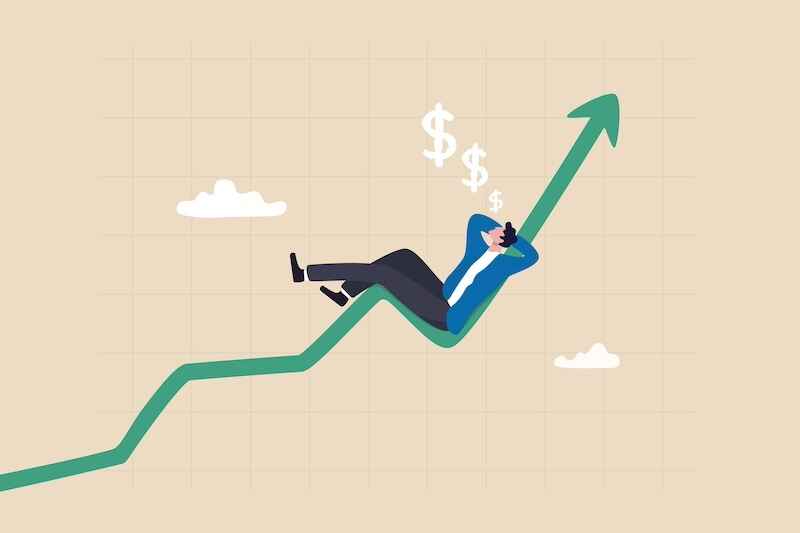Over the last few years, I’ve debated several Bitcoin bulls at numerous investment conferences around the country.
If you wonder which side of the debate I took, you haven’t been reading my stuff over the last few years.
Bitcoin – I’ll resist the temptation to use the more apt vulgar rhyme – is the greatest Ponzi scheme of all time.
Ponzi schemes have been around since Italian immigrant Charles Ponzi orchestrated the first one in 1919.
The surprising thing about bitcoin is that there is no bandito at the center.
This is a naturally occurring, self-perpetuating Ponzi scheme.
But I’m getting ahead of myself. Let’s return to my Bitcoin debates for a moment…
At the start of each debate, I’ve asked my opponents two straightforward questions:
- Aside from speculating on the price, what can I do with Bitcoin to make my life simpler, easier, or better?
- By what criteria do you determine whether the market price of Bitcoin is overvalued or undervalued?
Yet something strange happens to Bitcoin bulls when you ask these two basic questions.
They get very hard of hearing.
No matter how often I repeat them, they just talk around them.
Instead, they prattle on about the admitted problems with our fiat monetary system, the marvels – still to be witnessed – of decentralized finance, and the fabulous potential of Web 3.0, which remains largely imaginary.
Don’t get me wrong. Bitcoin has some uses.
Because it is pseudonymous – not anonymous, like some claim – Bitcoin is beneficial if you want to send money to your bookie, drug dealer, or prostitute.
It’s also handy if you want to pay or receive bribes or kickbacks, a multi-billion-dollar global market.
And it’s a godsend if you’re an extortionist, blackmailer, money launderer, tax cheat, embezzler, human trafficker, heavy weapons dealer, terrorist network, drug cartel, or nation looking to avoid economic sanctions.
But for peaceful, law-abiding citizens, Bitcoin – like other crypto – is a solution in search of a problem.
Yet – like Lucy who promises Charlie Brown that she really will hold the football without yanking it away – we are perpetually told that we will all experience the blessings of Bitcoin very soon.
Don’t fall for this…
Bitcoin was supposed to make transactions faster. It makes them slower.
It was supposed to make them cheaper. It makes them more expensive.
It was supposed to make them easier. It makes them more difficult.
Bitcoin has no tangible value. It is a piece of computer code.
It is highly volatile, making it entirely unsuitable for most transactions.
Although it has been around almost as long as the iPhone, it is still not widely accepted. More than 99.99% of retailers don’t want it and won’t take it.
This will not change. Partly because business owners don’t want to take the risk of holding it.
(Recall that Tesla booked a loss of more than $140 million, thanks to CEO Elon Musk’s ill-time foray into Bitcoin.)
The larger problem is that Bitcoin is not scalable.
It can only handle a maximum of seven transactions a second. (This is a bug, not a feature.) Bitcoin cannot go beyond that.
Visa, by contrast, can process tens of thousands of transactions per second.
No currency with such severe limitations will ever become widely used.
Yet I find that crypto fans generally have the zeal of the newly converted.
At investment conferences, I often ask attendees whether they have ever owned Bitcoin.
About three-quarters of the hands go up.
(This is quite a bit more than the general public. A Pew study revealed that about 14% Americans – most of them young and male – have owned Bitcoin at some point. But I’m asking the question at investment conferences.)
When I then ask these same attendees how many of them have ever used Bitcoin to buy something, all the hands in the room come down.
Ask around yourself and you’ll soon find that even the people who have traded bitcoin have never used it to buy or sell anything.
Is this not odd?
Of course, some people have used Bitcoin to make purchases.
On May 22, 2010, for example, a programmer paid 10,000 Bitcoins for two pizzas. At the time, that was worth approximately $41.
Today, 10,000 Bitcoins are worth around $560 million. So I hope those two pizzas were really awesome.
Bitcoin trades near $60,000 today. What would cause the price of this asset to rise 15 million-fold – in less than 15 years – from $.004 to $60,000?
To many, this is one of the great financial mysteries of our time. And in my next column, I’ll unravel it.
Credit: Source link














